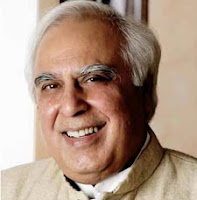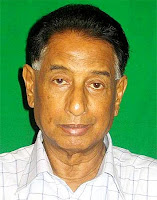
Switzerland, the country of beautiful scenery, yummy chocolates, classic watches, fine cheese and of course banking institutions. Swiss became one of the remarkable countries not only because of its geographical location where three main European cultures (French, German and Italian) meet but also of its Neutrality. We knew that Swiss maintains Neutrality by not participating in both World Wars and also one of the last countries to join UN. Its Neutrality and Banking legislation made Swiss Banks a Big Success. It is also common for the people in the wealthy circle to have a Swiss Bank Account. But it is said that it was also possible for a commoner to open a bank account in Swiss. This article gives an idea on Swiss Banking.
Banks in every country maintain some sort of secrecy and confidentiality about the clients and their account details. But what made Swiss Banks so famous for its secrecy? This secrecy history started early in 1934 when Nazi tried to obtain the details of the Jew Accounts. In order to protect their client’s assets and information Swiss coded Banking Secrecy Code in 1934. It states that it is a crime to reveal any confidential information to any third party even though on an official request of foreign government unless specific criteria are met. This law holds only for the Swiss banks in their country. But the branch offices outside the Swiss obey the laws of the country they located.
Many countries protest that Swiss banks had been encouraging Money laundering and Tax avoidance. No country will tolerate any kind of tax avoidance. Either Tax Fraud or Tax Evasion is a crime in most of the countries. But Swiss considers only the Tax fraud as a Crime but not the Tax Evasion. It shows that actively misrepresenting or lying about your income is a crime but concealing the true state of affairs to the tax authorities to reduce the tax liability is not. This should not be considered that Swiss Banks became a secret treasury for all the dirty money. Still many wealthy people believe that Swiss Banks provide the best wealth management across the world over centuries. But we can not neglect the fact that these bank accounts with higher rate of secrecy are misused.
To open a Swiss account one should be of 18 years old. The non residents of Swiss are subject to their own country legislation. The citizens are bound to report to IRS (Internal Revenue Service) about their Swiss Accounts. Recently in August 2009 UBS, one of the largest banks in Swiss had made a deal with the US government to reveal the account details of the US citizens as a result of John Doe summon by US. In February 2009 a case was filed against UBS by the US for conspiring to defraud the US Government by impeding the IRS. As a result of this suit UBS is about to deliver the account details of 52,000 US clients to US government. Hence non residents of Swiss have more restrictions in opening an account in Swiss.
The account can be opened either by correspondence or in person. While opening in person the client has to be interviewed and their banking needs are discussed. The client has to produce copies of identity documents (passport), documents to prove economic origin of the deposit and recent utility bill to validate the address given. If applied through correspondence apostille is needed. Apostille is a special seal which certifies that the document is a true copy of the original.
There are wide ranges of accounts offering different services to different clients. Every account needs a minimum balance requirement which varies with every type. This minimum balance amount increases with the rate of secrecy.
Classic Swiss Bank Account - Provided by Retail banks.
- Offers checking accounts, mortgage, payment services etc
- Minimum balance requirement 25,000 or 100,000 Swiss francs depending on the country u live.
Premium Swiss Bank Account - Provided by large Universal Banks.
- For International clients.
- Minimum balance requirement 25,000 or 250,000 Swiss francs depending on the country u live.
Swiss Cantonal Account - Provided by
Swiss Numbered Account - Provided by Private Banks.
- For Swiss and International Private Clients.
- Minimum balance requirement 50,000 to 15 million dollars.
The US citizens cannot have a numbered account. These numbered accounts do not carry the client’s name instead the Bankers replace the name with a Code number. Only the senior managers and secretaries know the relationship between the name and the corresponding code number. When money is transferred to this numbered account from any other bank the transactions are made with the code number. When transactions are made from the numbered account it holds the bank name instead of client’s name or their code number. These numbered accounts provide greater secrecy.
It is recommended that the clients to share the account details with a confidential person or to have a joint account. It is because in the case of client’s death the Swiss bankers will not know the death unless it is a celebrity. If the bank receives no call from the client for a long time it tries to reach the client. If it can’t reach the client the account will not be known to their heirs unless they are informed by the client. If the account remains inactive for 10 years it becomes dormant account and the account will be off the record. When the heirs are known of the account they are needed to intimate the bank with death certificate of the client, inheritance will and the passport. To trace an account one should know the bank name. Or else Swiss Bankers Association should be contacted with 100 Swiss francs as a fee. But it is not guaranteed that the account can be traced if the bank name is not known.
Swiss Banks are known well for their wealth management and confidentiality over centuries. However, we are in a state to accept the fact that some of the banks had been encouraging the money laundering and tax avoidance indirectly. Its time for the Swiss government to revise the banking legislations without compromising the loyalty of the customers and also the foreign relationships.














































































